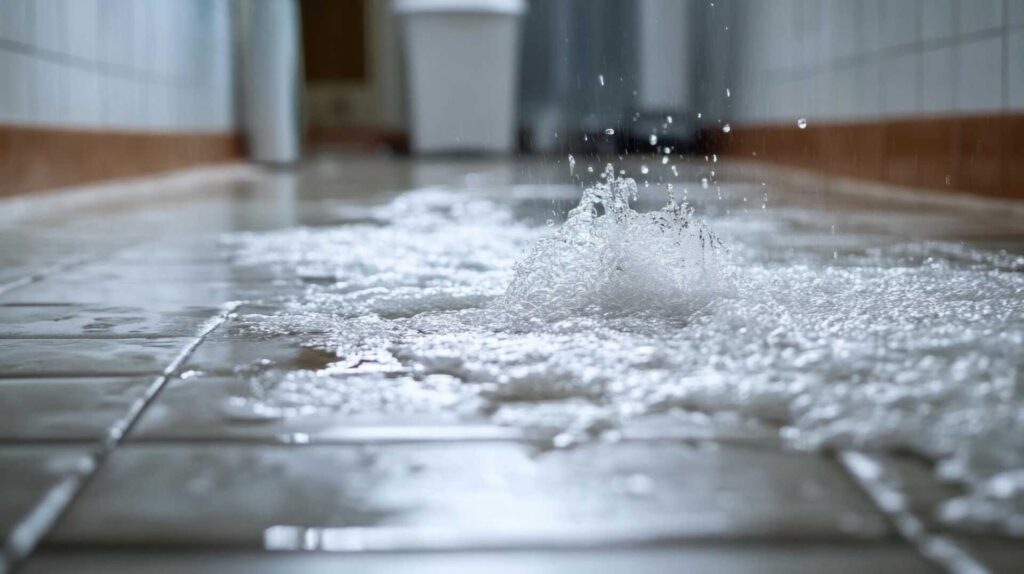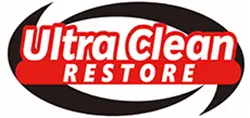
Contents
It’s interesting how often sewage issues arise just when you least expect them. When faced with such an urgent problem, knowing affordable cleanup solutions becomes essential. You’ll need to assess the damage first and then consider both DIY methods and professional services. But how can you balance effectiveness with cost? Understanding the available options can help you manage this challenging task efficiently.
Key Takeaways
- Compare prices and services of local sewage cleanup companies to find budget-friendly options that meet your needs.
- Look for specialized sewage cleanup businesses that offer transparent pricing and free estimates.
- Check for discounts or financing options from professional services to ease the financial burden during extensive cleanup.
- Review insurance policies for coverage on sewage issues and consider additional sewage backup insurance for broader protection.
- Explore community assistance programs, grants, and nonprofit organizations that provide financial aid for sewage cleanup efforts.
Understanding the Importance of Sewage Cleanup
When you encounter a sewage backup, understanding the importance of prompt cleanup is vital to preventing serious health risks and property damage.
Delaying action can lead to significant contamination risks, exposing you and your family to harmful pathogens. Sewage health is paramount; untreated waste can harbor bacteria, viruses, and parasites that pose immediate threats.
The longer sewage remains untreated, the greater the potential for structural damage and mold growth, which can compromise your living environment.
By addressing the issue quickly, you will protect your health and maintain the integrity of your property.
Utilizing affordable cleanup solutions ensures you mitigate these risks effectively. Engaging professionals equipped with the right tools and expertise can help restore your space swiftly and safely.
Assessing the Damage: Initial Steps
Before you start any cleanup process, it’s crucial to assess the damage caused by the sewage backup. A thorough damage assessment allows you to understand the extent of the contamination and prioritize your actions.
Here’s how to conduct your initial evaluation effectively:
Inspect Affected Areas: Check walls, floors, and furnishings for visible sewage and water damage.
Identify Contaminated Materials: Determine which items are salvageable and which need disposal, such as carpets and insulation.
Measure Water Levels: Use a moisture meter to gauge the extent of saturation in materials.
Document Everything: Take photographs and notes to help with insurance claims and future reference.
DIY Sewage Cleanup Techniques
When tackling sewage cleanup on your own, it’s essential to prioritize safety precautions.
You’ll need to select effective cleaning agents that neutralize contaminants while ensuring proper disposal methods to minimize environmental impact.
Understanding these key elements will enhance your cleanup efforts and protect your health.
Essential Safety Precautions
Although tackling sewage cleanup can be challenging, prioritizing safety is essential to protect yourself from harmful pathogens and toxins.
Follow these essential safety precautions:
Wear appropriate safety gear: Use gloves, masks, goggles, and waterproof boots to shield against contaminants.
Maintain personal hygiene: Wash your hands thoroughly after handling sewage materials and avoid touching your face.
Ensure proper ventilation: Open windows and doors to minimize exposure to harmful fumes during cleanup.
Isolate the area: Keep pets and family members away from the contaminated zone to prevent exposure.
Effective Cleaning Agents
To effectively tackle sewage cleanup, choosing the right cleaning agents is essential for neutralizing harmful pathogens and ensuring thorough decontamination. Biodegradable detergents and enzymatic cleaners are two effective options that break down organic matter while being environmentally friendly.
| Cleaning Agent | Benefits |
|---|---|
| Biodegradable Detergents | Safe for the environment; effective at removing stains and odors |
| Enzymatic Cleaners | Targets and digests organic waste; speeds up the breakdown process |
Using these agents ensures efficient cleaning and promotes a healthier living space. Always follow manufacturer instructions for ideal results and wear protective gear to safeguard against exposure. With the right agents, you’re on your way to a safe and clean environment.
Proper Disposal Methods
Proper disposal methods are essential during DIY sewage cleanup to ensure safety and compliance with local regulations.
You need to handle materials carefully to avoid health risks and environmental impact. Here are four key methods to reflect upon:
Biodegradable Materials: Use eco-friendly products for cleanup, ensuring they break down naturally.
Hazardous Waste Disposal: Identify any hazardous waste, such as chemicals or contaminated items, and dispose of them at designated facilities.
Sewage Treatment Facilities: Transport contaminated water or sludge to local sewage treatment plants that can handle it safely.
Personal Protective Equipment (PPE): Always wear gloves, masks, and protective clothing to safeguard yourself during the cleanup process.
Cost-Effective Professional Services
When you face sewage issues, finding cost-effective professional services can greatly reduce both the financial burden and the health risks associated with untreated waste.
Start by conducting service comparisons to identify budget-friendly options in your area. Look for companies that specialize in sewage cleanup and offer transparent pricing structures.
Evaluate their qualifications, experience, and customer reviews to ensure you make an informed choice. Many service providers offer free estimates, allowing you to gauge costs without commitment.
Consider asking about their cleanup process and any warranties they provide, which can save you money in the long run.
Don’t hesitate to inquire about discounts or financing options, especially for extensive damage.
Local Resources for Affordable Cleanup
You can access various community assistance programs designed to help with sewage cleanup costs.
Additionally, government grants may be available to offset these expenses, making the process more affordable.
Identifying and utilizing these local resources can greatly reduce your financial burden during cleanup efforts.
Community Assistance Programs
While many homeowners face the intimidating challenge of sewage cleanup expenses, various community assistance programs can alleviate some of that financial burden.
These programs often provide critical support through community outreach and funding opportunities.
Here are four resources you can explore:
Local Nonprofits: Many organizations offer cleanup assistance or financial aid for those in need.
Community Grants: Some municipalities provide grants specifically for sewage-related issues.
Volunteer Programs: Engage with local groups that mobilize volunteers for cleanup efforts.
Emergency Relief Funds: Check if your community has emergency funds to help residents during crises.
Government Grants Available
Government grants can greatly reduce the financial strain of sewage cleanup for homeowners facing unexpected disasters.
By tapping into government funding, you can access essential financial assistance tailored to your situation. Various local and state programs exist, designed specifically to help residents recover from sewage-related issues.
These grants often cover a significant portion of cleanup costs, allowing you to focus on restoring your home instead of worrying about expenses.
To find applicable grants, check with your local government or community organizations that specialize in disaster recovery.
Don’t hesitate to apply, as securing these funds can ease your burden and foster a sense of community support during challenging times.
Preventative Measures to Avoid Future Issues
To prevent future sewage issues, implementing a proactive maintenance plan is crucial. You can greatly reduce the risk of sewage backups and failures by focusing on preventative maintenance and conducting regular inspections.
Here are four key steps to take into account:
Schedule Regular Inspections: Arrange for professional inspections at least once a year to identify potential issues before they escalate.
Maintain Drainage Systems: Verify that gutters, downspouts, and drainage systems are clear of debris to avoid water pooling and pressure buildup.
Monitor Plumbing: Regularly check pipes and fixtures for leaks or signs of wear, addressing issues promptly to prevent more serious problems.
Educate Yourself: Stay informed about sewage systems and best practices so you know when to seek professional assistance.
Insurance Options for Sewage Cleanup
Even with proactive maintenance, sewage issues can still arise, making it vital to understand your insurance options for cleanup. Many homeowners overlook the importance of insurance coverage in these situations.
Standard homeowner’s policies mightn’t cover sewage backups unless specifically included. It’s essential to review your policy limits and see if you need additional endorsements for thorough protection.
Consider specialized sewage backup insurance, which can provide broader coverage for cleanup costs and restoration services. Evaluate your existing policy to determine if it meets your needs, or consult with your insurance agent to explore additional options.
Additionally, understand the claims process and any deductibles you might face. Being informed will empower you to make sound decisions and ensure your home is protected when sewage problems arise.
Community Assistance Programs and Grants
While sewage problems can disrupt your life unexpectedly, community assistance programs and grants can provide essential support for cleanup efforts.
You can tap into various community resources that offer financial assistance, helping you restore your home efficiently. Here are some options to evaluate:
Local Government Grants: Many municipalities offer grants specifically for sewage cleanup.
Nonprofit Organizations: Look for local nonprofits that provide financial aid for environmental issues.
State Assistance Programs: Check if your state has programs designed to assist residents with sewage-related disasters.
Community Development Block Grants: These federal funds can be allocated for sewage cleanup in low-income areas.
Wrap-Up
In steering sewage cleanup, think of your home as a ship. Just as a captain must swiftly address leaks to prevent sinking, you need to act quickly and wisely to manage water damage. By combining DIY efforts with affordable professional services, you can guide your ship clear of financial storms. Remember, proactive measures and community resources can keep your vessel afloat, ensuring a safe and healthy environment for you and your loved ones.
Recent Posts
3 Budget-Friendly Sewage Cleanup Solutions
When faced with a sewage cleanup issue, the cost of cleanup can quickly add up.
7 Affordable Sewage Cleanup and Repair Solutions
When you encounter a sewage backup, it’s essential to act swiftly and effectively. You can
Why Choose Local Emergency Flood Damage Services?
When disaster strikes and flooding occurs, choosing local emergency flood damage services can make a
